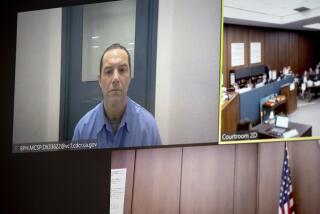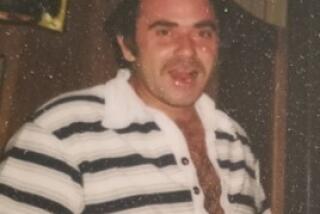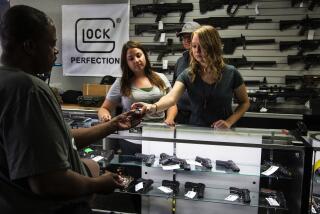Judge Allows DNA Evidence in Sex Assault Case : Courts: Jury will be county’s first to hear results of such testing, which the judge finds ‘valid and reliable.’
- Share via
SANTA ANA — A Superior Court judge ruled Thursday that results of DNA testing are allowable as evidence in a sexual assault case, whose jury will be the first in Orange County ever to hear such evidence.
Judge Theodore E. Millard issued the ruling after a hearing spread out over several weeks that delved into the methodology used by an FBI crime lab to test DNA samples in the case. Millard found the testing “valid and reliable.”
The ruling is significant not only because it will allow a jury in Orange County to hear DNA evidence for the first time, but because the new Orange County DNA lab, where most of the county’s DNA testing will be done, uses procedures similar to the FBI lab’s.
Deputy Dist. Atty. Dennis Dean Bauer, the DNA specialist for the district attorney’s office, hailed Millard’s ruling as “very exciting” and a breakthrough for introducing DNA evidence in Orange County trials.
The defendant in the case, Phillip Michael Gross, 29, faces 64 years and 8 months in prison if convicted on 25 counts in connection with a series of sexual assaults at commercial businesses over a three-month period in 1989.
Police were able to gather semen at the scene of four of the assaults and sent them to the FBI for DNA testing. In all four instances, the test samples show there is only one chance in 200 million that anyone other than Gross could have been the attacker, according to the FBI lab results.
DNA, or deoxyribonucleic acid, is found in blood and body fluids and carries a person’s unique genetic coding. Experts say the odds of two people having the same DNA--with the exception of identical twins--is usually one in several billion.
DNA evidence already has been presented at trials in other counties in California. But none of the Orange County cases in which there was DNA evidence has ever reached a jury trial.
In two cases where Orange County judges have upheld the use of DNA evidence, the defendants pleaded guilty before their trials began.
In a recent serial-rape case, Orange County Superior Court Judge William W. Bedsworth ruled against the use of DNA evidence. But prosecutor Bauer said that the ruling was based on technical grounds, and that the hearing preceding it had not been nearly as far-reaching as the one in the Gross case.
Gross is charged with nine Orange County assaults occurring from April through June, 1989. Prosecutors allege that he robbed female attendants at businesses, such as hair salons or dry cleaners, usually at knifepoint, just as they opened for the day. He then took the victims to back rooms where he sexually assaulted them, prosecutors said.
In each case, the victim has identified Gross as the attacker, prosecutors said.
Gross, who also has cases pending in Los Angeles County, was arrested in Long Beach two years ago after a witness remembered seeing his McDonnell Douglas name tag. It included his last name and first initial. Prosecutors claim Gross had worn it into a small business and then left the building. When he returned a short while later, he was not wearing the name tag. The witness, however, remembered it.
One of Gross’ lawyers, Deputy Public Defender Alan J. Cravaro, said Thursday that he was disappointed by Millard’s ruling on the DNA evidence.
“I don’t know if a jury will be able to sort out why we believe the DNA test should not be considered reliable,” he said.
Millard, in a written ruling, stated that he believed the reliability of the evidence was “very high” and would outweigh “any danger of . . . confusing the issues or misleading the jury.”
“The correct scientific procedures were utilized in this case and the results produced were reliable,” Millard stated.
More to Read
Sign up for Essential California
The most important California stories and recommendations in your inbox every morning.
You may occasionally receive promotional content from the Los Angeles Times.













